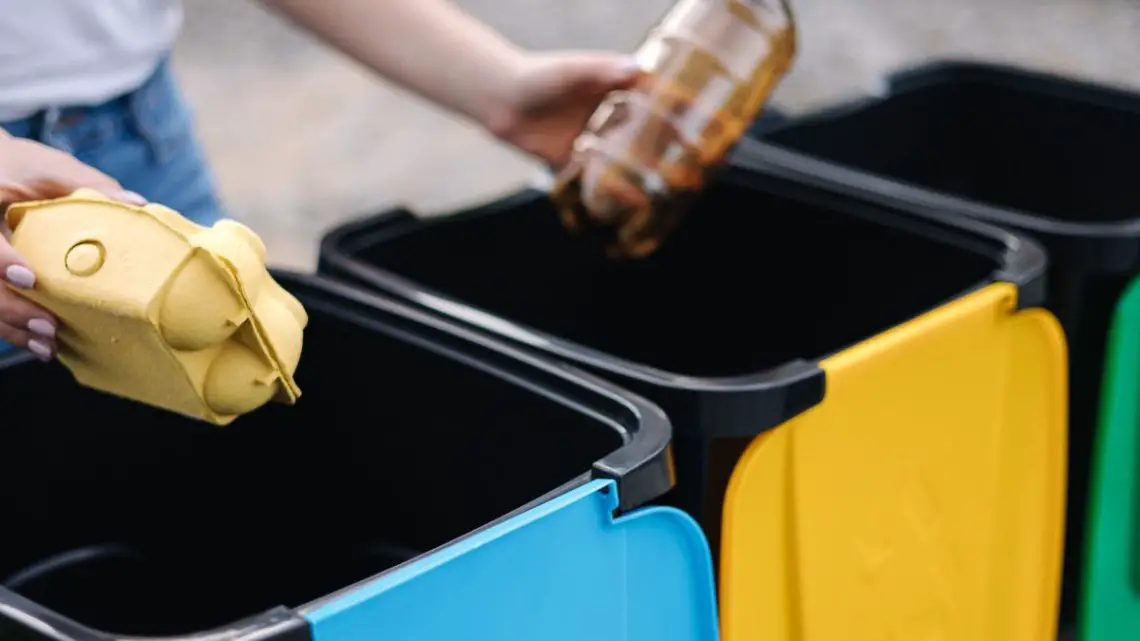
Capturing Consumer Passive Income with Recycling
October 11, 2023Big organizations, businesses, and schools literally have free money sitting in their hallways and parking lots, but instead that money gets thrown away. The fact is people bring disposable bottles, cans and containers with them to the workplace or where they visit all the time. And, when that container isn’t needed any longer, people look for the nearest trash can to dispose into. That said, by simply setting up a recycle bin next to the same, and arranging for its bagging and transfer, a business or organization can easily recapture hundreds of dollars in recycling every year.
No One Wants to Touch Dirty Stuff
So, why don’t more operations have active recycling? Unfortunately, recyclables are treated as dirty materials, which people generally want nothing to do with. Simply, moving everything to the trash involves less contact, even if it means throwing away material that could be recovered financially.
An Amazing, Repeating Income Stream
The typical person will easily generate 1 to 3 containers of recyclable bottles or cans a day, amazingly. Those who are active consume even more. A well-placed recycling container can easily be filled and harvested in a few days at that rate with a large population of regular employees, students are attendees. While some won’t consume at all, using thermoses or similar, most consumers still generate a noticeable amount of recyclables, and that’s money for the organization where they spend most of the day working or studying.
Of course, translating bags of recyclables into liquidation is another step. That’s where services like Corridor Recycling and similar come into play. They make it easy and convenient to recover income from recyclables without all the work of collecting, transferring, and processing. Instead, these services can provide everything from the pickup to the containers for on-site collection. Even better, many such services have multiple recyclable channels. So, beyond drinking containers, a business can remove a significant amount of other recyclable waste too, such as paper, cardboard, and more. 
Alternative Benefits Happen Too
Naturally, with more of the work taken care of by a support service, there is less direct cash income recovered. However, that doesn’t mean there is no benefit. Instead of dealing with a lot of excess material that would otherwise become more waste and cost a business in removal, partnering with a recycling service moves that material out with less cost and more efficiency. The benefits are multiple: waste is removed, the environment benefits from reduced trash and the material goes back into production as a raw resource for new products. Many other countries globally have mandated this kind of recycling behavior in big organizations to maximize rare resources better, but it shouldn’t have to be government regulation as a driver. Businesses, customers, students, and communities all benefit from reduced waste and recycling in general.
Reducing Need Increases Independence
When communities boost recycling, they also reduce the need for new materials. If businesses and organizations can move past the immediate gratification that comes with immediate consumption, the long-term benefits of recycling positively impact markets as well as supply chains and costs of operation. When more material that can be reused comes back into markets, the overall supply for new production goes down. That means less long-term pricing growth and far more affordable operation for everyone who depends on raw materials such as metals and plastics. Recycling today is just smart all around, and the more organization players that get involved, the more the practice becomes standard operation everywhere.
The last thing anyone wants is markets of scarcity. Recycling on a broad scale can help prevent that scenario from becoming a reality in multiple industries.



 HFN News is your leading source for fresh hydrogen and renewable energy updates. Amid the fast-paced growth of hydrogen companies, we provide top-notch news and insights about this exciting sector. Our coverage spans from hydrogen cars to global sustainable initiatives, and we highlight the latest in green jobs and developing hydrogen hubs. We invite you to share your local hydrogen news and explore today’s renewable energy job listings on our site. Thanks for choosing HFN News as your trusted guide to the hydrogen and renewable energy world!
HFN News is your leading source for fresh hydrogen and renewable energy updates. Amid the fast-paced growth of hydrogen companies, we provide top-notch news and insights about this exciting sector. Our coverage spans from hydrogen cars to global sustainable initiatives, and we highlight the latest in green jobs and developing hydrogen hubs. We invite you to share your local hydrogen news and explore today’s renewable energy job listings on our site. Thanks for choosing HFN News as your trusted guide to the hydrogen and renewable energy world!
